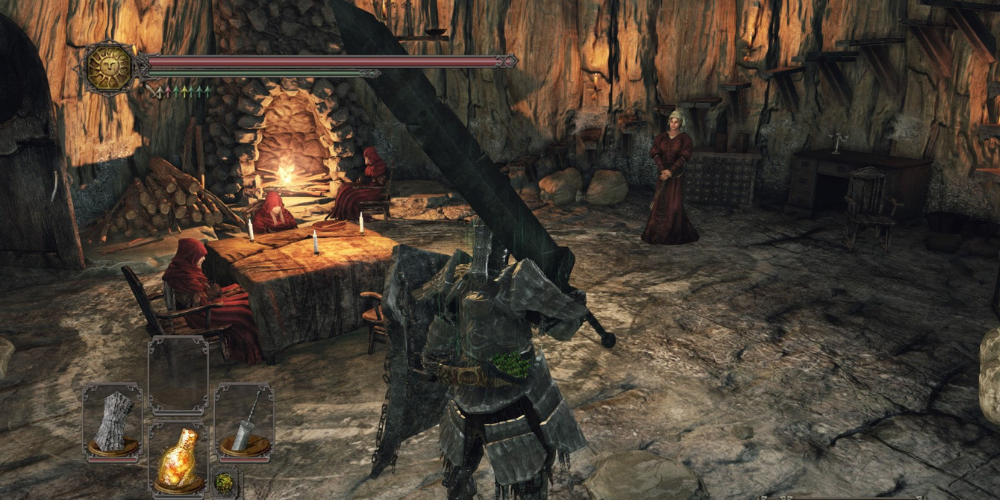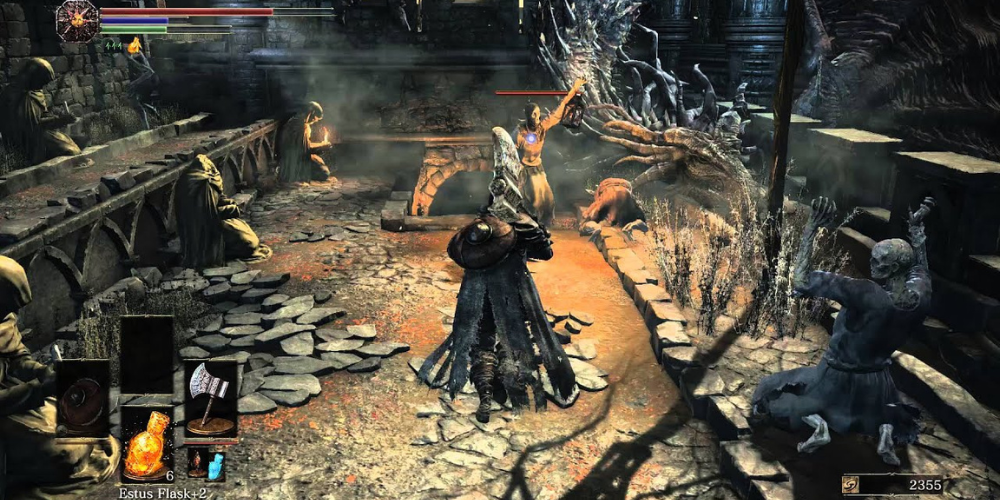
Genesis of the Dark Souls Series
The Dark Souls series, developed and published by FromSoftware and Bandai Namco Entertainment, took its initial steps into the gaming world in 2011. Masterminded by Hidetaka Miyazaki, these action role-playing games were born from the desire to create a franchise that would echo the enigmatic and unforgiving nature of old-school games. The series, often praised for its deep lore, challenging gameplay, and intricate world design, has become a benchmark for difficulty in modern games.
Dark Souls (2011)

The original Dark Souls game introduced players to the grim and atmospheric world of Lordran. The game's narrative revolves around a cursed undead character seeking to discover the fate of their kind. The player's journey is fraught with perilous environments and formidable bosses, each encounter teaching the value of patience and strategic planning. Dark Souls pioneered the concept of "tough but fair", with its punishing difficulty offset by a deeply rewarding sense of accomplishment.
Dark Souls II (2014)

The sequel, Dark Souls II, transported players to the kingdom of Drangleic. While Miyazaki was less involved in this installment, the game carried forward its predecessor's legacy of challenging gameplay and cryptic storytelling. It introduced the concept of hollowing, where the player's maximum health decreases with each death, adding another layer of difficulty. Dark Souls II received praise for its expanded world and refined mechanics despite some criticism for its level design.
Dark Souls III (2016)

Dark Souls III, the final chapter in the trilogy, marked the return of Miyazaki as director. Set in the Kingdom of Lothric, the game represents a blend of elements from its predecessors, along with influences from another FromSoftware title, Bloodborne. Dark Souls III is renowned for its faster, more aggressive combat, expansive lore, and majestic, decaying environments. It is often considered the culmination of the series, tying up many loose ends in the narrative while leaving just enough ambiguity to ignite player speculation.
The Future of Dark Souls

While Dark Souls III marked the end of the series, the influence of Dark Souls in the gaming industry remains profound. FromSoftware continues to develop games that embody the challenging, rewarding, and atmospheric experience that the Dark Souls series is famous for, such as Sekiro: Shadows Die Twice and the upcoming Elden Ring. The legacy of Dark Souls is far from over, with potential for new games inspired by its design philosophy and perhaps even remasters of the original trilogy.
Bottom Line
The Dark Souls series, with its challenging gameplay, deep lore, and atmospheric world design, has left an indelible mark on the gaming industry. From the decayed beauty of Lordran to the mysterious kingdom of Lothric, each game in the series offers a unique and captivating experience. Even though the trilogy has concluded, the spirit of Dark Souls continues to inspire and shape the future of gaming. In the end, the flame may fade, but the Dark Souls series will always endure in the annals of gaming history.